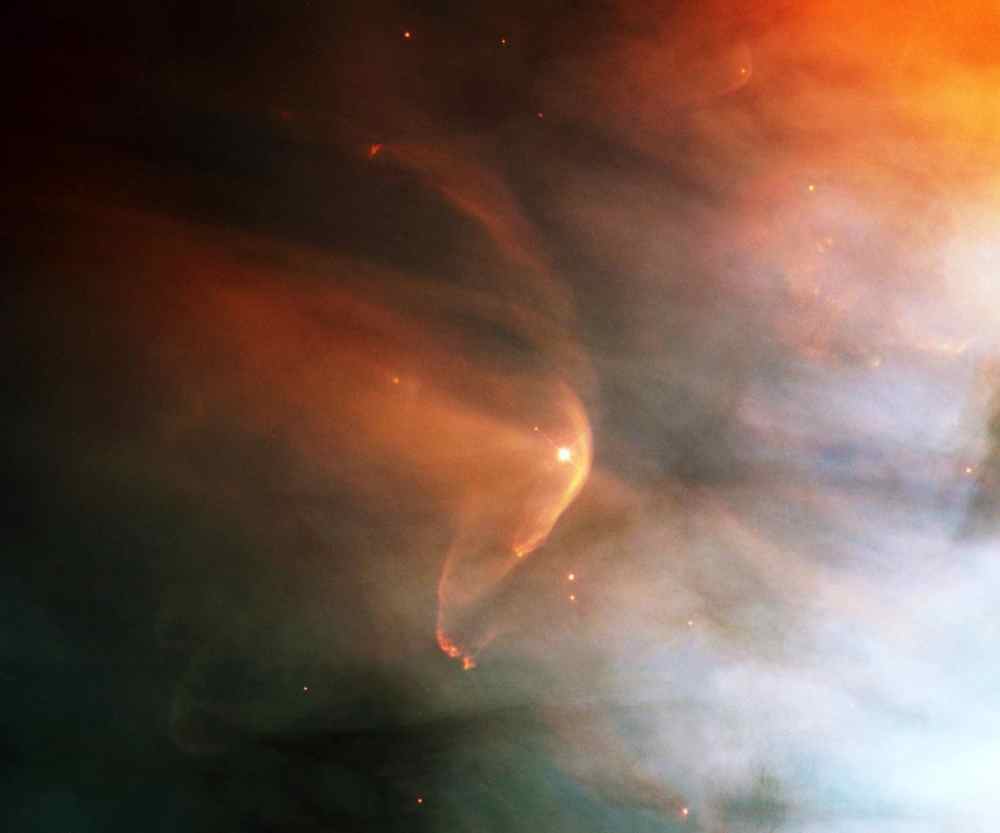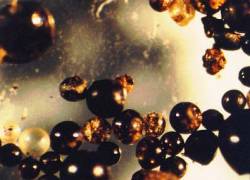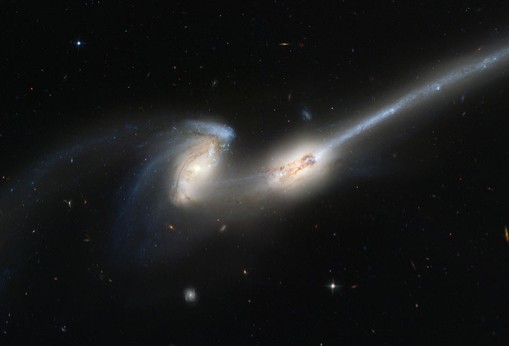Physicist: Not just likely, but essentially guaranteed!
Technically, every atom in your body has been swirling all around the galaxy for billions of years (although it’s mostly stayed in the same place for the last 5 billion or so). So whether material is “from space” is really a question of time frame. We talk about asteroids and meteorites that fall to Earth as “being from space”, but they’re made of the same stuff and have the same origins as the material of the Earth, they’re just a little late to the party. If you roll back the clock far enough you find that the Earth (or what would become the Earth) was just a big collection of the same dust and rocks that pepper it today.
The water on Earth is constantly being incorporated into, and falling out of, living things. All of us (people and critters alike) are mostly water. Likewise, a fair fraction of the stuff you’re most likely to find drifting about in the solar system is water. Sure, space-rocks have lots of iron and other heavy stuff, but we use very little of that. Water seems like the most likely material to be from space and in your body.
The water in the biosphere is pretty good at mixing around. So good in fact, that (excluding permanent ice) it doesn’t even make sense to say that a particular water molecule is from anywhere in particular. Most of the material in your body has not only been to the far side of the planet, but has probably been there and back many times.
About 20 tons of material (this changes a lot day-to-day) is collected by the Earth every day in the form of space dust, meteors, flakes of ice, etc. You can find this stuff everywhere on the planet in the form of tiny spheres of iron (you’d never notice that it looks any different from any other grit without a microscope).
Almost all of the that material has been drifting about in the solar system since it formed (at about the same time as the Earth, 5 billion years ago), sequestered inside of comets and asteroids, and has only recently (hundred million years, give or take) been released by collisions or in comet tails or whatnot.
There’s a fairly heated debate about what fraction of the junk drifting around the solar system is made of water, but let’s assume (low-aiming shot in the dark) that about 10% of the 20 tons of stuff that switches from “team space” to “team Earth” every day is water ice. This sort of thing has been going on since the Earth formed (basically, it’s how the Earth formed). Also, just to draw a line in the sand, let’s say that stuff that’s arrived on Earth in the last one thousand years is from space and anything around before that is from Earth. So, that’s about 730,000 tons of “new” water from space. Which sounds like a lot, but considering that the Earth already has 1,400,000,000,000,000,000 tons of water, it’s just a drop in the bucket. Specifically, a bucket with lots of water in it.
Even so, atoms are small, and there are a hell of a lot of them. They get everywhere.
So here comes an actual answer. About 1 out of every 2 trillion water molecules on Earth (reminder; these are gross estimates), and in our bodies has arrived in the last thousand years. That means that there is recently-from-space-water in everybody’s body, with one molecule every few dozen cells.
But that’s just water from our own solar system. Once a star system forms very little new material comes into it. The vast, vast majority of the stuff in interstellar space is gas and ultra-fine dust, and that sort of thing tends to get blown away by the solar wind of an active star. The closest that this stuff generally gets is the “heliopause“, which is way out there (somewhere around 100 times farther out than Earth’s orbit).

A “bow shock” created by the interaction of the solar winds produced by the star LL Ori and the interstellar winds of the Orion Nebula.
It’s estimated that only about 0.01% of the dust in the solar system drifted in from interstellar space. Still! That’s around 1 part in 20 quadrillon, which means that you should have somewhere around 50 billion water molecules in your body that arrived on Earth in the last thousand years from somewhere outside of the solar system.
Keep in mind that all of these numbers are fairly rough, but not 10-orders-of-magnitude-rough. There’s totally interstellar space water in you!
Once galaxies form very little matter is exchanged between them. The exception being when galaxies collide and merge, but the Milky Way hasn’t had a “big meal” in a very long time. If you think that space in high Earth orbit is empty, brother let me tell you: intergalactic space is… a lot more empty than that. The atoms in your body that came from other galaxies, almost certainly came from galaxies absorbed by the Milky Way.










Pingback: Why Do Emotions Influence Space? Writer Science Edition - Road Written
Pingback: Why Do Emotions Influence Space? Writer Science Edition • BossMeggan